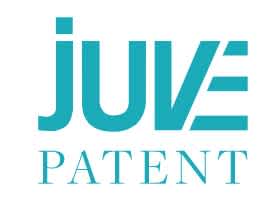Sisvel vs. Haier One of Key Decisions of 2020
The end of 2020 saw the German Federal Supreme Court’s (BGH) final decision in Sisvel vs. Haier. To us at Sisvel, this was a monumental decision which we asserted, “radically redefined the obligations of SEP implementors in patent negotiations as well as the remedies and damages available to patent owners when implementors deploy hold-out strategies and other delaying tactics.”
Well, we weren’t the only ones who considered the decisions significant; when several IP publications summarized their key rulings for 2020, Sisvel vs. Haier was frequently mentioned.
IPWatchdog
For example, in IPWatchDog’s article, The Year in Patents: Ten Developments We’ll Remember From 2020, authors Gene Quinn and Rebecca Tapscott stated,
"The German Court in Sisvel v. Haier agreed with what had become a growing body of law in lower courts across Europe, namely in the Netherlands in Philips v. Asus and in the United Kingdom in Unwired Planet v. Huawei, that there is no prohibition against an injunction simply because a patent in question is standard-essential. Furthermore, the Sisvel court held that an SEP holder can offer different rates to different licensees and also explained that the SEP holder is only required to make a FRAND offer if the SEP holder has received an adequate declaration of a willingness to license.
Subsequently, at the end of August, the much-anticipated decision of the Supreme Court of the United Kingdom in Unwired Planet v. Huawei held that it is appropriate for UK courts to set worldwide FRAND rates. Furthermore, the UK Supreme Court, in agreement with lower tribunals and the German Federal Court of Justice in Sisvel, similarly ruled that SEP holders are allowed to offer different FRAND rates to different licensees. The Unwired Planet court also explained that an SEP hold does not abuse power as long as there is a showing of a willingness to license."
In another IPWatchdog article entitled, What Mattered in 2020? Industry Experts Have Their Say on This Year’s Biggest Moments in IP, two of the contributors mentioned Sisvel vs. Haier. First, Nathan Mutter from Holland & Hart stated, “The German Federal Court of Justice (FCJ) clarified in Sisvel v. Haier that implementers of SEPs defending against an injunction should express an unconditional willingness to take a license on FRAND terms without employing negotiation delay tactics or waiting for a judgment of patent validity or infringement.”
Then Gene Quinn reiterated some comments from the Ten Developments article, stating:
"Then, on the heels of Unwired Planet, the German Federal Court of Justice agreed in Sisvel v. Haier that an SEP holder can offer different rates to different licensees. The Sisvel court also explained that the SEP holder is only required to make a FRAND offer if the SEP holder has received an adequate declaration of a willingness to license. All of this together with the U.S. Department of Justice issuing Avanci a positive business review letter (BRL) regarding its proposed patent pool, and Avanci also prevailing in antitrust litigation regarding licensing of SEPs, 2020 was a big year for SEP owners."
Juve Patent
In the article Top trends in European patent law 2020, Juve Patent Co-editor Mathieu Klos wrote,
"However, it was the German Federal Court of Justice that made the first big splash of the year in European FRAND case law. In May, the court ruled that Haier is infringing an SEP of NPE Sisvel. The court also ruled that Haier is acting as an unwilling licensee in FRAND negotiations. This significantly raised the bar on FRAND rules for implementers."
AEONLaw
Sisvel vs. Haier was also mentioned in AEONLaw’s article, Who decides what patent licensing terms are “fair”?, where author Adam Philipp wrote:
"Courts in different countries may have different views on what’s “fair.” For example, in the German case of Sisvel International v. Haier Deutschland GmbH, the court held that a royalty rate offered to a licensee that was much higher than a rate previously offered to a Chinese corporation wasn’t “discriminatory” because the earlier deal was made under pressure from the Chinese government."
Key Findings
To summarize, the ruling in Sisvel vs. Haier established four key findings that level the playing field between infringers and patent owners.
The infringer “must clearly and unequivocally declare his willingness to conclude a license agreement with the patent holder on reasonable and non-discriminatory terms and must also subsequently participate actively in the license agreement negotiations in a target-oriented manner.” Failure to do so provides exposure to injunctive relief; Factors include, for example, whether the infringer continuously asks for additional technical information, particularly information that is otherwise available.Potential licensees shall also, for example, retain external experts to analyze the license offer.
Defenses based on regional license counteroffers to globally based license offers do not pass muster.
The definition of FRAND does not necessarily require the same rate for all licensees.
An infringer who refuses to meet his FRAND obligations loses the ability to rely on FRAND to import license terms.
As the expert panel discussed in this webinar, these precedents impact not only Germany but the EU and the United States as well. If you register for the webinar you can watch the archived version.



